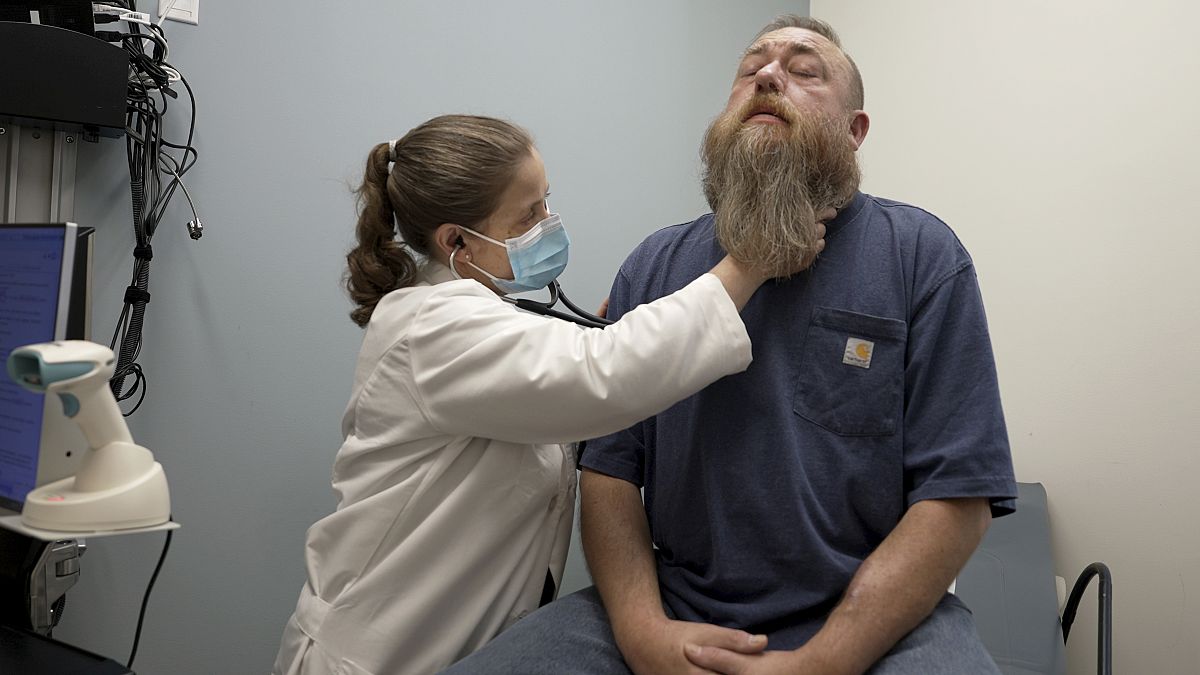Patients tired of waiting for human transplants line up for pig organs

None of the first four organ recipients survived more than two months, but researchers believe gene-edited pig organs could help address the US’s shortage.
The calls and emails started coming to NYU Langone Health and Massachusetts General Hospital in the United States soon after doctors began experimenting with pig organs in humans.
People worried they’ll never get a scarce human transplant are asking: when could we get a pig kidney?
Alex Berrios of Louisville, Kentucky, needs a second transplant, but finding another human match is proving impossible. So he’s closely watching for a chance at pig kidney research.
“It may not work, and I have to be OK with that,” Berrios said. “I think it’s worth the shot”.
Now, as researchers hunt for an alternative to the dire shortage of transplantable organs, two US companies aim to begin the world’s first clinical trials of xenotransplantation in 2025 – using pig kidneys or hearts to try to save human lives.
Would-be volunteers are impatient to see if they’ll qualify, as researchers fine-tune how best to test if the humanised pig organs they’ve designed might really work.
Scientists have tried animal-to-human transplants for years without success, but now they can edit pig genes, trying to bridge the species gap enough to keep the human immune system from immediately attacking the foreign tissue – though the best gene combination is still unknown.
So far, each of the five Americans to receive a gene-edited pig organ have been an emergency experiment for people out of options.
None of the previous recipients – two given pig hearts and two kidneys – survived more than two months, but news that a woman was faring well after a pig kidney transplant at NYU in late November has heightened potential patients’ anticipation.
“We have to have the courage to continue,” said University of Maryland transplant surgeon Dr Bartley Griffith.
Sick and tired from dialysis
In Palm Springs, California, Carl McNew emailed NYU to ask about volunteering while he’s still fairly healthy.
McNew donated a kidney to his husband in 2015, but later his remaining kidney began declining, something very rare in living donors. Medications and intermittent dialysis are helping, but McNew knows he’ll eventually need a transplant.
“There’s just something about being part of something like that, that is so cutting-edge,” said McNew, who spotted news of NYU’s xenotransplant research in 2023 and emailed his interest.
For Louisville’s Berrios, donor scarcity isn’t the only hurdle. Born with a single kidney that failed in his late 20s, a living donor transplant restored his health for 13 years.
But it failed in 2020 and he has since developed antibodies that would destroy another human kidney, what doctors call “highly sensitised”.
Three days per week, Berrios quietly slips out of his home before dawn to spend nearly four hours tethered to a dialysis machine.
Getting the grueling treatments at 5 am is the only way the father of two can both stay alive and hold down a full-time job.
But dialysis doesn’t fully replace kidney function – people slowly get sicker. So even as Berrios tried an experimental therapy to tamp down his problem antibodies, he told NYU he’s interested in a pig kidney.
Rigorous trials to test pig organ transplants expected
US Food and Drug Administration (FDA) rules require that pig organs be extensively tested in monkeys or baboons before humans. And while researchers have extended those primates’ survival to a year, sometimes longer, they were desperate for experience with people.
After all, the pig organs are genetically altered to be more humanlike, not more baboon-like.
At NYU and the University of Alabama at Birmingham, surgeons first tested pig organs in bodies of the recently deceased, donated for scientific research.
Patients given pig organs so far have been “compassionate use” transplants, experiments that FDA allows in select emergency cases for people out of other options.
Although the first four patients didn’t survive long, in part because of complications from other diseases, those experiments proved pig organs could work at least for a while and offered other lessons.
For example, discovery of a hidden pig virus in the first heart transplant prompted better tests for that risk.
Only rigorous studies comparing similarly ill patients will offer a clearer picture of pig organs’ potential – maybe those like Towana Looney, the woman doing well after a recent pig kidney transplant.
Despite eight years of dialysis, Looney wasn’t nearly as sick as prior xenotransplant recipients, but couldn’t find a matching donor. Like Berrios, she had a highly sensitised immune response.
Looney may be “kind of a litmus test” for trial candidates, said NYU’s Montgomery, who led her transplant with her original surgeon in Alabama, Dr Jayme Locke.
“She’s received the transplant at just the right time,” before dialysis did too much damage.
Pig organ transplants still have much to prove
Researchers feel pressure to show if pig organs can keep people alive much longer than a few months, said Mike Curtis, CEO of eGenesis, one of the companies developing organs. If they can’t, the question will be whether they have the right gene edits.
When it comes to testing, the balance is choosing participants sick enough to qualify, but not so sick they have no chance.
“There’s a tremendous number of patients who would be very willing, very willing to do this,” said Dr Silke Niederhaus, an associate professor of surgery at the University of Maryland, who isn’t involved in xenotransplant research but watches it closely.
Niederhaus urges people to learn their odds of getting a human kidney before volunteering.
If they’re younger, healthier, or have a living donor, “I would probably say go with what’s known and what’s proven,” Niederhaus said.
But if they’re older and dialysis is starting to fail, “maybe it’s worth taking the risk”.
World News || Latest News || U.S. News
Source link



